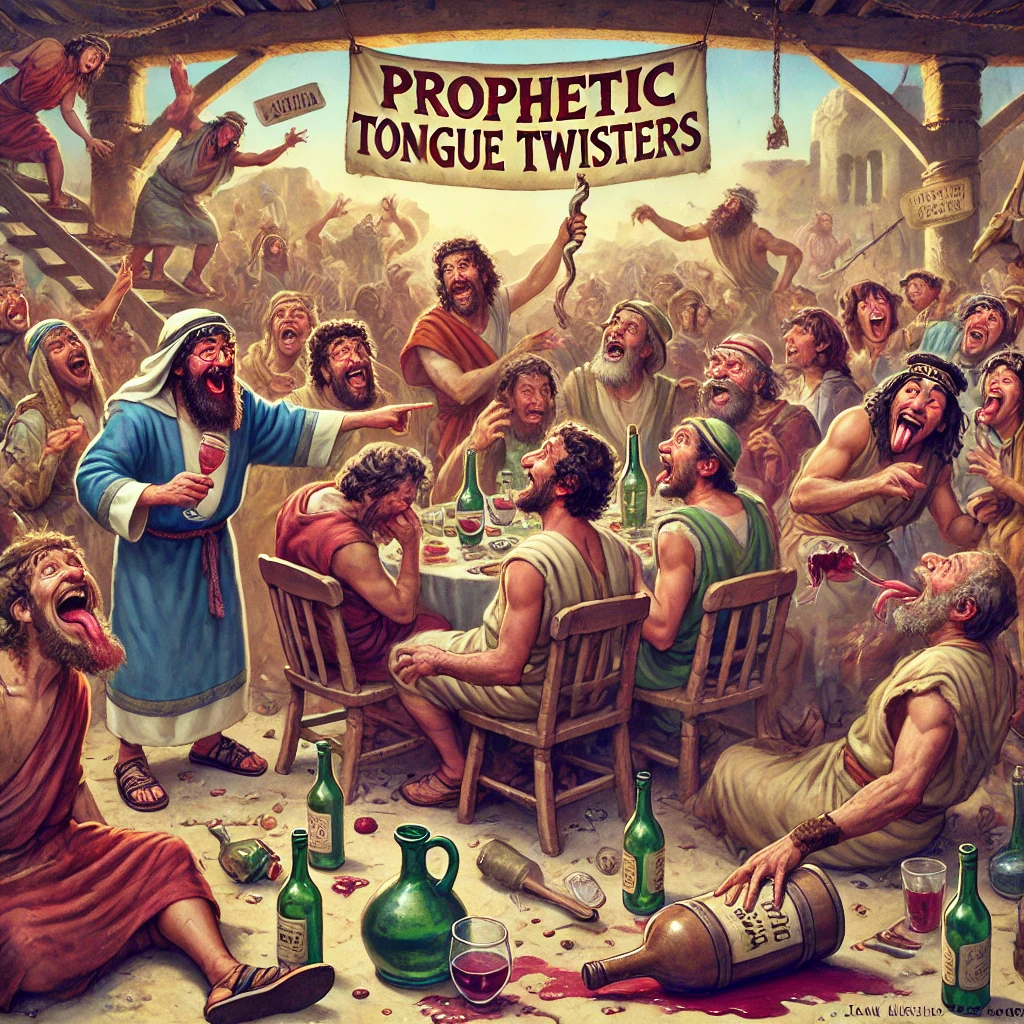Isaiah 28:10 is one of those verses that people love to use as a tagline to add a feeling of dedicated, diligent, and trustworthy study of Scripture in their endeavors, especially if that endeavor is supposed to be some form of inductive study. It is usually shortened, and occasionally reversed to read simply Line upon Line, Precept upon Precept.
In truth, I find it ironic that a verse that has become the calling card for solid inductive study is taken somewhat out of context in order to serve this function. I will find it in my heart to forgive, as you shall see, but I am…. what? amused? by the transgression… well, maybe amused isn’t exactly right.
The problem is that this passage does not, in context anyway, promote the wisdom of a step by step interpretation of anything, but is used as a taunt against the prophet and a mockery of the prophetic word. This sense of the verse is apparent when read in the context of Is 28:1-13 as a prophetic drama.
The message seems to have been delivered at some point between the 732 BC devastation of the Northern Kingdom, Israel, at the hands of Tiglath-pileser III and their 722 BC annihilation. It most likely occurs after the 727 BC death of Tiglath-pileser. The subject of the message is the coming devastation of Israel, who is compared to the plucked wreaths adorning their heads at what appears to be a drunken war council—looking fresh but dead already.[1]
Isaiah, a Judean prophet, appears to be giving a dramatic presentation of the fate of the Northern Kingdom for the benefit of those in Jerusalem, whose own arrogance led them to scorn YHWH’s words. He never actually speaks these words to Israel, but, rather, in vs. 14 turns his little drama into an object lesson for his real audience, saying, “Therefore hear the word of the LORD, you scoffers, who rule this people in Jerusalem!”
Isaiah unfolds a bit of role play as the prophetic accusation against Israel in the midst of their disgusting display of debauchery (drunken fools partying amid drunken prophets and priests brought in to validate their plans, covering every space on the tables before them with puke) is rebuffed with dramatic reply in vs. 9-10, “To whom will he teach knowledge, and to whom will he explain the message? Those who are weaned from the milk, those taken from the breast? 10 For it is precept upon precept, precept upon precept, line upon line, line upon line, there a little, there a little.”
Connection between their mockery of the prophetic word and their accusation of “who does he think he’s talkin’ to? Babies?” is thought to be found in the Hebrew rhythm of the taunt, what many deem a kind of child’s ditty akin to our own ditties surrounding characters like Peter Piper, wood chucking Woodchucks, Lolly Licking Lions, and dear old Sally and her Seashells. Let me try to replicate the feel of it.
צו לצו צו לצו קו לקו קו לקו זעיר שׁם זעיר שׁם
Tsav-la-tsav, Tsav-la-tsav Kav-la-kav, Kav-la-kav Za-air sham, za-air sham
The meaning of the words may point to some distant context in which this ditty was used to encourage kids in their systematic memorization of Torah; צו is believed a short form of the word commandment; קו is believed to represent a string, like a plumb line, but may reference the learning of “lines.” This would be punny, representing a line of memorization & introducing the idea of commands as plumb lines to live by. זעיר שׁם may represent the idea of bit by bit learning. This would put this ditty on par with our own “Now I know my ABC’s, won’t you please now sing with me.”
As the prophet responds, however, this insult becomes the poetic basis for the punishment. The word of the Prophet is mocked as child’s babble and, thus, the next words spoken to them from YHWH shall be through the babbling tongues of foreign invaders. A Divine rest was offered, but they have scorned it; now, all that remains is incoherent babble that their destruction might be made complete. (28:13)
So, is it inappropriate to use this passage as a tagline for Christian Education if we are quoting the dramatic mockery & jeering of those who have rejected God to do so? Or, is it okay to use this passage a tag line for solid Bible study since its original use may have been as a children’s ditty for memorizing Torah?
[1] Some have taken the whole scene to be metaphorical given the common association with poured out divine wrath and drunkenness. (Isaiah 51:17; Zech 12:2)
[2] Media pic is from sxc.hu
Discover more from Biblical Literacy with Dr. Andrew D. Sargent
Subscribe to get the latest posts sent to your email.


